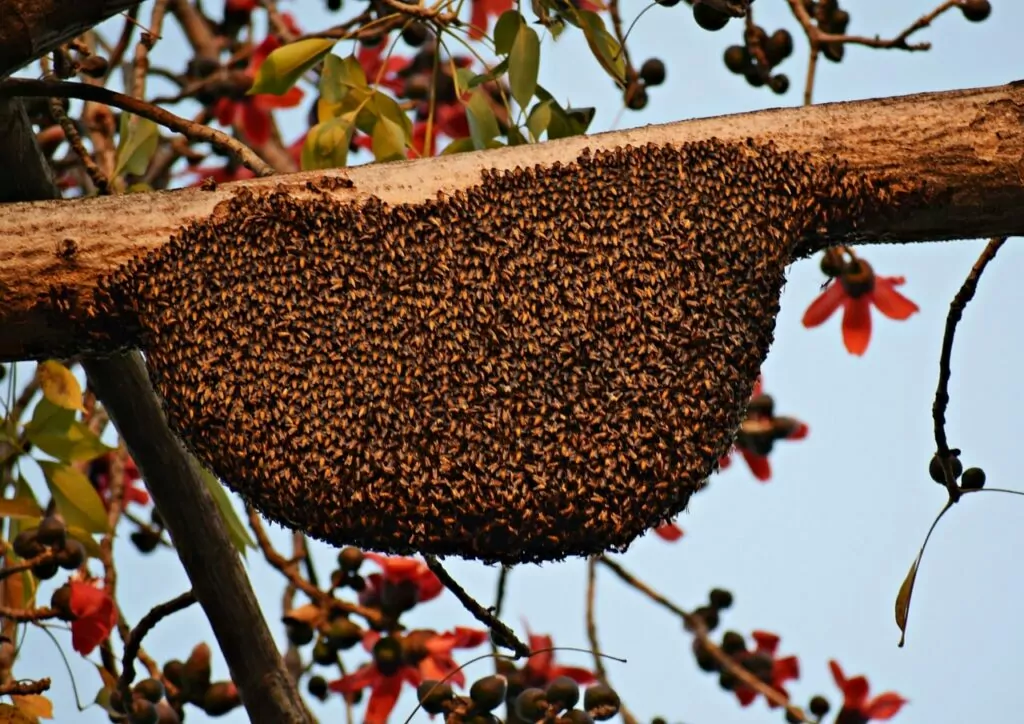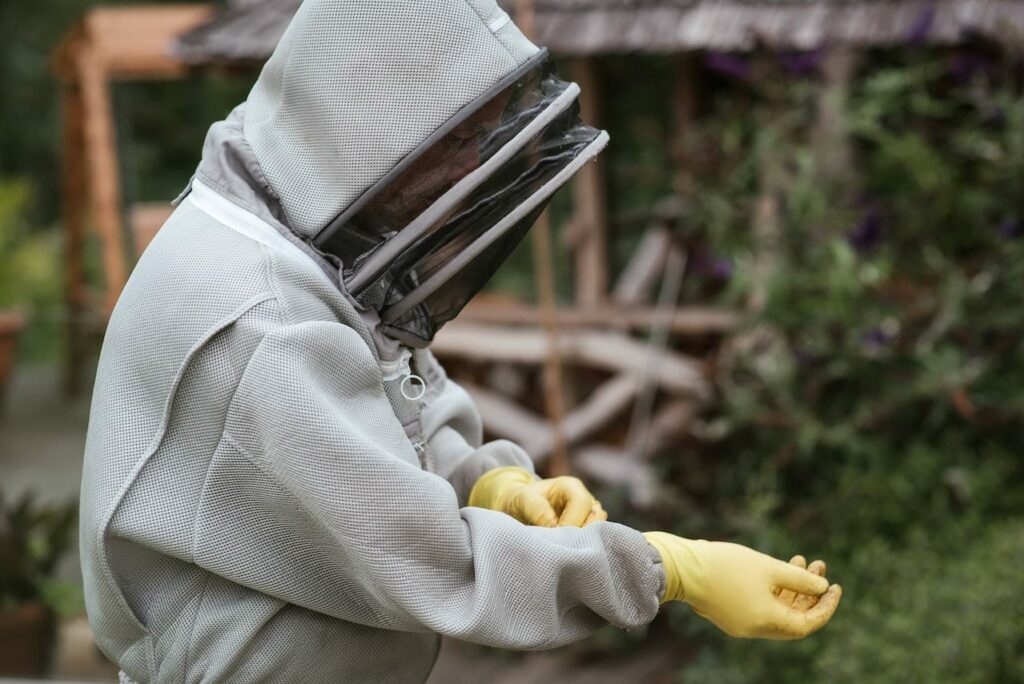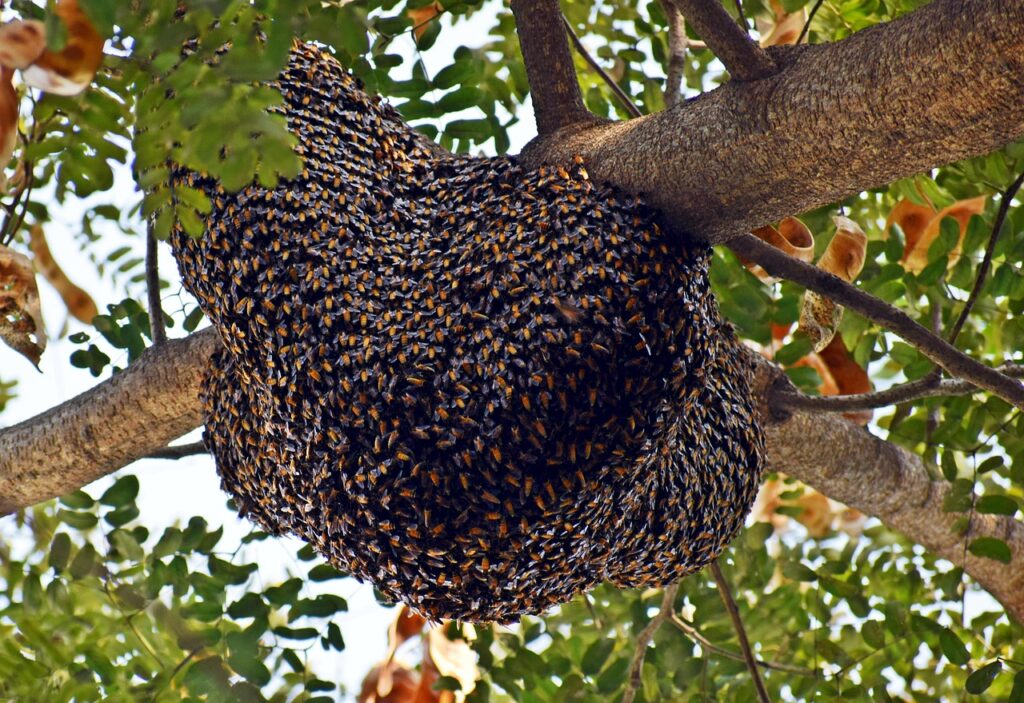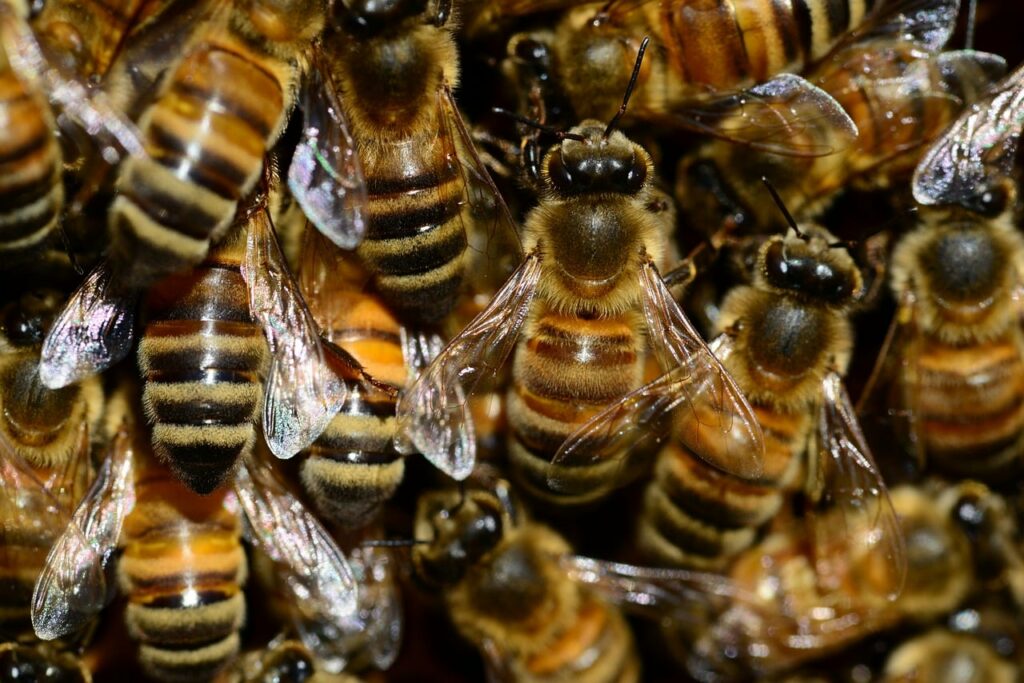Want to get rid of bees? Read this blog post for info on free bee removal, what attracts them to your home, how long they stay in one place, and more!
Introduction
Bees are flying insects that are known for their ability to produce honey and pollen, and for their role in pollination. There are over 20,000 species of bees, and they can be found on every continent except Antarctica. While bees are generally not aggressive, they can become a nuisance if they build their nests too close to human habitations. If you’re dealing with a honey bee problem, read on to learn more about bee removal and what you can do to get rid of them.
Can you get bees removed for free?
Yes, there are ways to find free bee removal services. You can simply google “beekeepers association” and find beekeepers in your area that may be willing to remove the bees for free. These services are typically provided by organizations or individuals who are passionate about bees and their importance to the environment. However, most of them won’t take the responsibility of getting rid of the bees for free from your property. If they do, they will not offer any guarantee or warranty on the safety of your home. It is therefore best to consult with a professional bee removal service that can provide you with the peace of mind that your home is protected.
But, before you contact a free bee removal service, it is important to determine if the bees are actually honey bees or another type of bee. Honey Bees are protected by law in many states, so it is important to be sure that you are not dealing with honey bees before you attempt to remove them yourself or contact a free removal service.

How do I find free bee removal near me?
There are several ways to find free bee removal services. You can search online or ask your local beekeepers association for a list of beekeepers in your area who offer free removal services. You can also contact your local cooperative extension office or the Department of Agriculture1 for a list of bee removal services in your area. You can also check some authentic business directories, such as yellow pages or classified ads in your local newspaper for bee removal services.
If you find a beekeeper who offers free removal services, be sure to ask about the beekeeper’s experience and qualifications. Also, ask the beekeeper what type of equipment he or she uses to remove bees. Bee keepers who use bee vacuums or bee smokers are typically more experienced and qualified to remove bees than those who do not use these tools.
Once you have found a bee keeper who offers free removal services, be sure to schedule an appointment as soon as possible. Bee removal is a time-sensitive process, and it is important to have the beekeeper remove the bees before they become a nuisance, before there is a honey bee swarm or they cause damage to your property.
“In any event, whatever you decide to do, it’s best to keep children and pets away. After a while, the swarm may move on by itself – usually within a day or two. However, if the bees are definitely in an inconvenient place and are causing concern, or if you need impartial advice, it is best to act sooner rather than later.”
buzzaboutbees.net/bee-swarm-removal2
Who removes bees for free?
If you have bees on your property and want to get rid of them, there are a few things you need to know. Many companies will charge you a fee for this service, but some will do it for free. Also, you need to make sure that the company you choose is reputable and has a good track record. Finally, you need to be sure that the company you choose is insured and bonded.

When it comes to finding a free bee removal service, your best bet is to start by asking around. Talk to your friends, family, and neighbors to see if they know of any companies that offer this service. You can also check online, as many websites list companies that offer free bee removal services.
The following are some of the most popular companies in the USA that provide free bee removal services:
The Bee Man14
Located in Del Mar, California they provide free bee removal services. They also have a 24-hour hotline for bee emergencies.
Bee Busters15
They are located in Laguna Hills, California, and also provide free bee removal services. They have a bee hotline that you can call to have a beekeeper come to your location.
Bee Safe16
This company is located in Fort Worth, Texas, and provides free bee removal services. They have a website that you can visit to find out more information about their services.
Many other companies also provide free bee removal services, so if you don’t see one listed here, just do some research and you should be able to find a company that can help remove bees safely.
How can they remove bees near me?
If you’re like most people, you probably think that the only way to get rid of bees is to kill them. However, there are actually many ways to remove bees without harming them. In fact, there are many companies that specialize in bee removal.
One of the most common ways to remove bees is by using a bee vacuum3. This is a special vacuum that is designed to suck up bees without harming them. The bee is then released into a safe location away from your home. Professionals will always wear a full beekeeper outfit as well, for their own safety.
Some other common methods of bee removal4 include using mothballs, vinegar spray solution, garlic spray, smoke, bitter almond oil, cinnamon, and citronella candles5. All of these methods are effective at driving bees away without harming them.
If you’re looking for a bee removal company, be sure to ask about their methods to ensure that they’re using a humane method.

Will bees leave on their own?
Bees are essential to our ecology6, but when they establish their hives close to people, they may become an annoyance. You might be wondering if bees on your property will ultimately go on their own.
The answer to this question depends on the type of bee you have. Honeybees will typically only stay in an area as long as there is a food source available. Once the food source is gone, the bees will move on. However, if you have a bee hive on your property, the bees will likely stay put until the hive is destroyed.
Bumblebees, on the other hand, are much more likely to stay in an area even if the food source is gone. This is because bumblebees can hibernate through the winter months. So, if you have bumblebees around your home, it’s unlikely they’ll leave by themselves.
If you’re dealing with bees and you want them gone, your best bet is to call a professional. They should be able to safely remove the bees from your property and relocate them to a more suitable location.
How do you keep bees from coming back?
There are a few things you can do to keep bees from coming back:
Remove any food sources: If there is anything sweet or sugary that bees can access, they will be attracted to it. This includes fruit trees, flower gardens, and even garbage cans. Make sure to keep these areas clean and free of any food sources.
Fix any leaks: Bees are attracted to water, so if there are any leaks in your home or yard, they will be sure to find them. Make sure to fix any leaks right away to keep bees from coming back.
Ensure cleanliness: Bees are attracted to areas that are dirty or cluttered. If there is garbage or debris around your property, bees will be sure to find it.

How long do bees stay in one place?
Bees will typically stay in one place as long as there is a food source available. If a bee colony exhausts the food source in an area, it will move on to another location. Some honey bee swarms may only stay in one place for a few hours or maybe a day, but others may remain for several days. It all depends on the availability of food and the size of the colony. However, if you have a bee hive on your property, the bees will likely stay until you remove the hive.
What attracts bees to my house?
Because of the easy access points, the aroma it emits, the vivid colors, abandoned fruits or waste, wet regions, and bright colors of your home, bees, and wasps may be drawn to it. Unfortunately, situations that are ideal for bees and wasps frequently occur, like your chimney, wall voids, fences, and below your decking.
Bees are attracted to houses for a variety of reasons. Sometimes it’s because they’re looking for a place to build their hive, and other times it’s because they’re drawn to the flowers and plants in your garden.
If you’ve noticed bees hanging around your home, there are a few things you can do to get rid of them:
● Trim back any overgrown plants or flowers, as bees are attracted to these.
● Clean up any spilled food or drinks, as bees are also attracted to sweet things.
● If you have a beehive on your property, call a professional to have it removed.
“The best way to prevent bees from establishing a colony on your property is to not provide them with an ideal environment for survival. Bees will look for nest sites that are protected and enclosed.”
ars.usda.gov4
Is bee removal always free?
Bee removal is a service that some beekeepers offer for free and others charge for it. Some firms that remove bees cost very little, while others cost a fair sum for the effort required to remove the bees. Understandably, the general population has some serious misunderstandings regarding how to get rid of bees.
The answer to whether or not bee removal is free depends on the situation; the severity of the bee infestation and the location of the bees. If the bees are located in an area that is difficult to access, the removal process may be more complicated and costly. However, if the bee infestation is not severe and the bees are located in an easily accessible area, the removal process may be free of charge.
You should always consult with a professional bee removal service to determine the best course of action for your specific situation.
Conclusion
As you can see, there are a few things to consider when it comes to free bee removals, such as the location of the bees and the severity of the infestation. However, if you have a bee hive on your property, the best course of action is to call a professional to have it removed. There is no need to risk your safety by trying to remove the bees yourself.
Have you ever had to deal with a bee infestation? What did you do to get rid of them? Let us know in the comments below!
You might also be interested in our articles on:
What Are The Different Types Of Honey?
Honey In Tea; Is It Good For You?
Why A Beekeeper Outfit Is Necessary
Reference List:
- https://www.usda.gov/
- ‘Bee Swarm Removal; What to do and How, BuzzAboutBees.net, Published: February 11, 2021. Accessed online at https://www.buzzaboutbees.net/bee-swarm-removal.html on Sep 14, 2022.
- ‘Make a Bee Vacuum That Really Sucks’, Jennifer Berry, Instructables Living. Accessed online at https://www.instructables.com/Make-a-Bee-Vacuum-that-Really-Sucks/ on Sep 14, 2022.
- ‘Preventing Bees from Nesting on your Property On-site Bees’, USDA. Published: January 27, 2021. Accessed online at https://www.ars.usda.gov/pacific-west-area/tucson-az/carl-hayden-bee-research-center/docs/bee-safety/preventing-on-site-bees/ on Sep 14, 2022.
- ‘Oil of Citronella’, NPIC. March 2013. Accessed online at http://npic.orst.edu/factsheets/citronellagen.html on Sep 14, 2022.
- ‘Why bees are critical for achieving sustainable development’, Patel, Pauli, Biggs, Barbour, Boruff. Published April 20, 2020. Accessed online at https://www.ncbi.nlm.nih.gov/pmc/articles/PMC7708548/ on Sep 14, 2022.
- ‘Bee Control’, Homeshield Pest Control. Accessed online at https://www.homeshieldpestcontrol.com/bee-control on Sep 14, 2022.
- ‘Professional Bee Removal Services’, Harpoon Pest Solutions. Accessed online at https://www.harpoonpestsolutions.com on Sep 14, 2022.
- ‘How To Get Rid Of Bees In Your Neighbourhood Without Killing Them’, Abdul Hafiz, YouthKiaWaaz.com. Published March 6, 2020. Accessed online at https://www.youthkiawaaz.com/2020/03/how-to-get-rid-of-bees-without-killing-them/ on Sep 14, 2022.
- ‘What is a Bee Vaccuum’, Bee Serious. Published: May 15, 2017. Accessed online at https://beeseriousfl.com on Sep 14, 2022.
- ‘Prevention and Treatment of Nuisance Honey Bees around Your Home’, Jeffrey Harris and Blake Layton, Mississippi State University. Accessed online at https://extension.msstate.edu/publications/prevention-and-treatment-nuisance-honey-bees-around-your-home on Sep 14, 2022.
- ‘Reasons Why You Keep Getting Bees And Wasps In Your House’, Zack DeAngelis, Pest Pointers. Accessed online at https://pestpointers.com on Sep 14, 2022.
- ‘Shouldn’t Bee Removal Be Free?’, DTek Live Bee Removal. Published: April 24, 2020. Accessed online at https://dteklivebeeremoval.com on Sep 14, 2022.
- https://beemanlivebeeremoval.com/contact-us/
- https://beebusters.com/about-bee-busters/history/
- https://www.beesafebeeremoval.com/
- Does Bleach Kill Bees? - April 23, 2024
- How Do I Get Rid of Ants Without Harming Bees? - April 16, 2024
- Do Bug Zappers Kill Bees? Completely Explained - April 9, 2024
